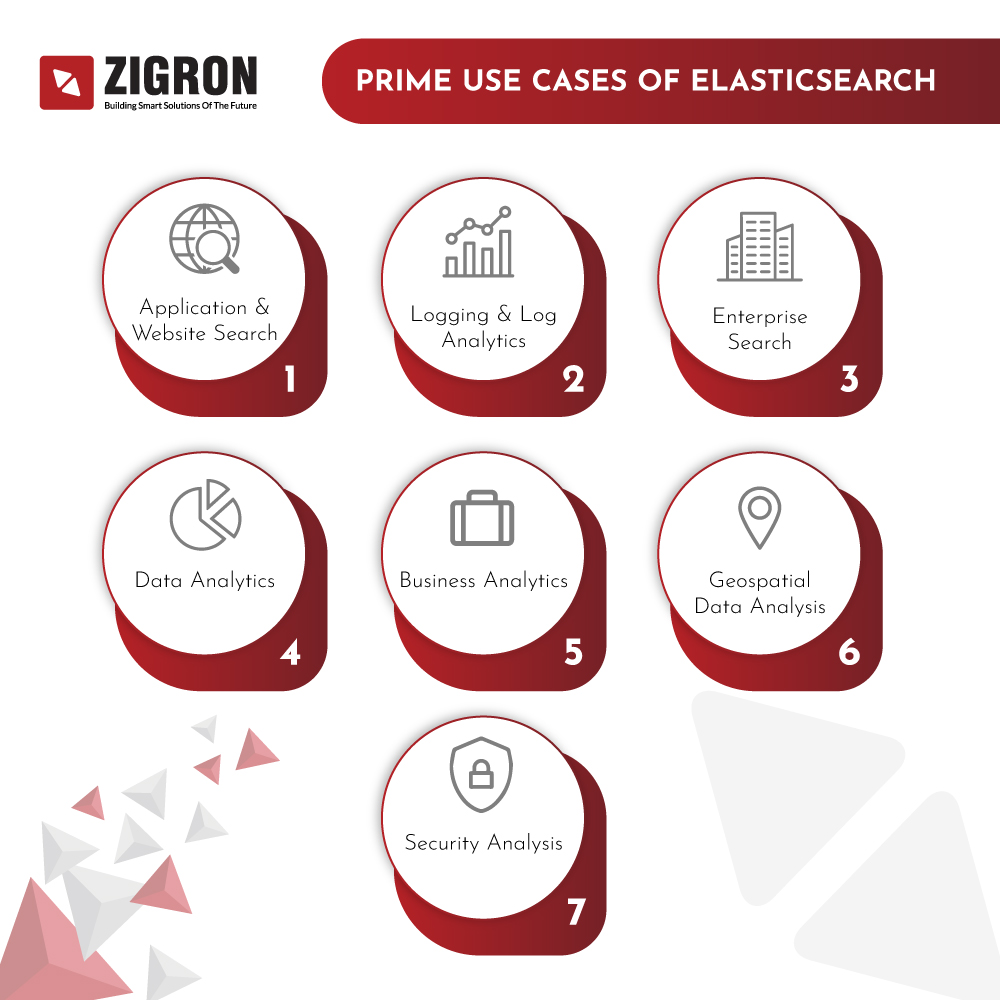Members of all startups tell you how proud they are of world-changing technology, phenomenal growth, and market traction. For businesses to provide superior customer service, customers need to search quickly for their preferred product from an enormous product base. For organizations to run effectively, you need to access data and analytics from massive databases. Easy handling of data and serving information faster help form the backbone of an efficient and successful business.
Delay in fetching information leads to poor customer service, leading you to lose a potential customer. This fallback in search is attributed to the relational database among multiple tables, and retrieving meaningful user information requires fetching from them. As if by which, introducing Elasticsearch in your business websites will reduce the hassle for customers to search the products resulting in high sales.
What is ElasticSearch?
It’s a document-oriented search engine designed to store, retrieve, and manage documented, structured, unstructured, and semi-structured data. Data is stored in JSON format. It is schema-less, using defaults to index the data unless you provide mapping as per your need. It relies on flexible data models to build and update visitor profiles to meet the demanding workload and low latency requirement for real-world engagement.

Why is ElasticSearch effective?
Relational databases (RDS) work comparatively slowly for massive datasets, leading to slower search results through queries from the database. Relational databases can be optimized, but that brings with its set of limitations like every field cannot be indexed, and updating rows to heavily indexed tables is a lengthy and exhausting process.
Businesses are now looking for alternate ways to store the data in a manner where retrieval is quick. This is achieved by adopting NoSQL rather than Relational Databases for storing data. Elasticsearch relies on flexible data models to build and update visitor profiles to meet the demanding workload and low latency requirements of real-world engagements.
Benefits of Elasticsearch
The increasing popularity of Elasticsearch within small and huge businesses alike testifies the vast number of benefits it brings to the table. Below are some of the key benefits of using Elasticsearch.
Direct, Easy, and Fast access
Documents are stored near the corresponding metadata in the index. This helps to reduce the number of data reads, which, increases the search engine result response.
Manages a large amount of Data
In comparison to traditional SQL, database management systems that take more than 10 seconds to fetch required search query data, Elasticsearch does that within a few microseconds (10 seconds, to be precise)
Scalability of the Search Engine
As ES has a distributed architecture, it enables us to scale up to thousands of servers and accommodate petabytes of data. The customers then need not manage the difficulty of distributed design as it has been done automatically. More often than not, we have multiple ways to index some documents or query them, and with the help of Elasticsearch, we can do it better. ES is not new, and it’s evolving at a tremendous pace; new features are getting added. But the core is consistent and can help achieve faster performance with search results for your search engine.
Functional enhancements of Elasticsearch
Fuzzy Search
Keyword matches now cater for fuzziness on search passes, allowing for spelling mistakes or mistyping, so if the user enters the term incorrectly, the same result would be displayed. For example, if ‘oramge’ is searched instead of ‘orange,’ the same result will be shown.
Keyword matches are also enhanced to include language stemmers so the same set of products would be returned, whichever related word is included in the search.
Exact Phrase Matching
With the help of Elasticsearch, exact matches are boosted to ensure they rank above fuzzy matches. Amount enabled is configurable via tradeit.
Search Result Explainer
Upon the admin login, merchants can see why products are ranking where they do against any search term and display scoring against each criterion defining that ranking in each instance—this tool for examining and adjusting search strategy, seeing the results, and tweaking as they fit.
Conclusion
Since we live in an era of IoT, the data volumes of business systems have increased exponentially. The traditional approach to cope with this is to adopt sharding, including database and table sharding at the physical and logical layers.
ElasticSearch is a super powerful tool that helps upgrade your application and allows you to extract a lot more value from your stored data. Even if it’s an application with a low level of data, it is an excellent idea for the data engine. By leveraging automated testing in different environments, we guarantee high-performance cloud-native applications with the ability to innovate quickly while modernizing existing applications. Learn more about our DevOps and IoT services and step into the world of the future.
